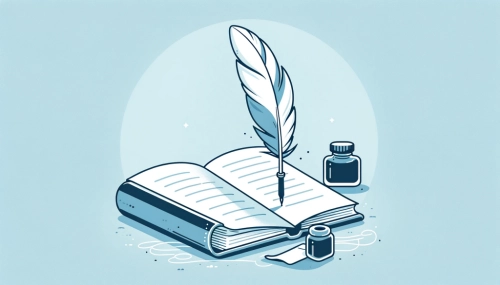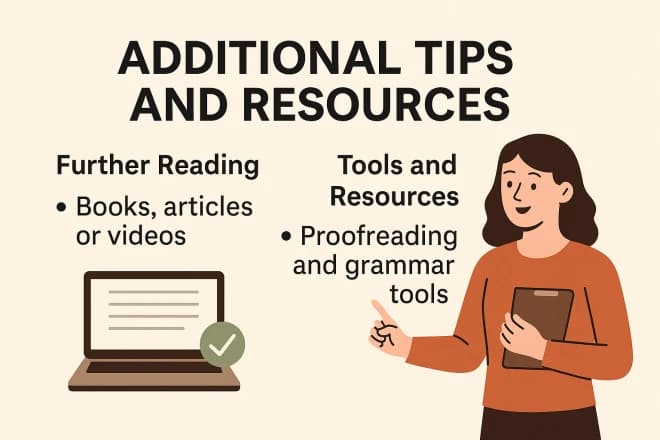Unlock Insights: Find the Answers You Seek on Our Blog
What Is a Poem
By Evelyn Sterling
Poetry is among the oldest and most significant forms of artistic expression in human history.Across centuries and cultures, it has served as a vessel for the deepest human emotions, thoughts, and experiences, capturing the essence of life itself in a tapestry of words.
This blog post is to explore the essence of poetry. It is not just an attempt to define what poetry is but to understand its significance in our lives. We will delve into the characteristics that make poetry a unique form of literature, the impact it has on readers and societies, and how it manages to convey complex emotions and ideas in a few, carefully chosen words.
The Essence of Poetry
Definition and Characteristics
Poetry is an art form that uses language to evoke meanings and emotions beyond the literal sense of words. It’s distinguished from other forms of writing by its use of compact, often rhythmic language to express complex ideas and feelings. Key characteristics of poetry include its brevity, the intentional use of rhythm, rhyme, and meter, and a density of meaning that invites readers to interpret and find personal resonance.
The use of rhythm, rhyme, and meter in poetry is not merely for aesthetic pleasure but serves to enhance the emotional and intellectual impact of the poem. Rhythm provides the beat that guides the reader through the poem, while rhyme creates a sense of harmony and expectation, and meter gives a structured pace to the unfolding of ideas.
Types of Poetry
The world of poetry is rich and diverse, encompassing various forms that each bring their unique flavor to the poetic tradition. Sonnets, with their 14 lines and intricate rhyme schemes, have been used to explore themes of love, death, and beauty. Haikus, originating from Japan, capture fleeting moments in nature within their concise three-line structure. Free verse, eschewing traditional meter and rhyme schemes, offers poets the freedom to express their thoughts and feelings without constraints, reflecting the modern spirit of individualism and innovation.
The Language of Poetry
At the heart of poetry’s power is its language, which employs imagery, metaphors, similes, and symbolism to create vivid pictures in the mind of the reader. Imagery uses sensory descriptions to bring life to the poem, allowing readers to see, hear, taste, touch, and smell the world it describes. Metaphors and similes compare seemingly unrelated things to reveal deeper truths about the human experience, while symbolism imbues objects, characters, or events with larger meanings, enriching the layers of interpretation available in a poem.
Through these elements, poetry transforms ordinary language into an extraordinary medium of expression, capable of capturing the complexities of life and the human condition in a way that resonates across time and culture.

The Significance of Poetry
Emotional and Psychological Impact
Poetry possesses a unique ability to touch the deepest parts of our hearts and minds, evoking a range of emotions from joy to sorrow, from tranquility to turmoil. It speaks to the human experience in a language that transcends words, reaching directly into the soul. Poetry can provoke thought, challenging our perceptions and encouraging us to see the world through a different lens. It has the power to offer solace in times of grief, to provide a sense of companionship in loneliness, and to inspire action and change. The emotional and psychological impact of poetry lies in its capacity to articulate what is often felt but not easily expressed, giving voice to feelings and thoughts that might otherwise remain hidden.
Cultural and Historical Importance
Poetry also serves as a vital conduit for cultural and historical expression, preserving the essence of a time, place, and people. It has been used throughout history to record events, celebrate heroes, lament tragedies, and immortalize cultural rituals and traditions. Through poetry, future generations can glimpse the past not just in terms of dates and facts but as living, breathing experiences filled with emotion, wisdom, and insight. This preservation of culture and history through poetry ensures that personal and collective memories are not lost to time, providing a bridge between the past, present, and future.
The Personal and Universal in Poetry
One of the most remarkable aspects of poetry is its ability to connect individual experiences with universal themes. By articulating personal emotions and situations, poetry resonates with broader, more universal truths about love, loss, hope, despair, and the myriad experiences that define the human condition. This connection makes poetry deeply relatable to a wide audience, regardless of background or life experiences. A poem about a specific moment or feeling in one person’s life can echo in the hearts of many, revealing the shared humanity that binds us all. It is this interplay between the personal and the universal that elevates poetry beyond mere words, transforming it into a powerful medium for connection and understanding.
Appreciating Poetry
Reading and Interpreting Poetry
Poetry is an art form that rewards patience and attention. To fully appreciate a poem, one must delve beyond its surface, exploring the intricate dance of form, language, and theme that gives it life. Here are some tips to enhance your reading and interpretation of poetry:
- Engage with the Form: Notice the structure of the poem – its stanza arrangement, line lengths, and rhyme scheme. These elements are not arbitrary; they serve to reinforce the poem’s meaning and emotional impact.
- Savor the Language: Pay close attention to the poet’s choice of words, the imagery evoked, and the use of figurative language like metaphors and similes. These are the tools with which poets paint their thoughts and feelings.
- Contemplate the Themes: Identify the underlying themes of the poem. These could range from love and loss to nature, society, and beyond. Themes are the foundational ideas upon which the poem is built.
- Read Aloud: Poetry is as much an auditory experience as it is a visual one. Reading a poem aloud can unlock its musical qualities and deepen your understanding of its rhythm and flow.
Finding Meaning and Enjoyment
Poetry invites a deeply personal experience, offering myriad interpretations and connections that resonate differently with each reader. Here’s how you can find meaning and enjoyment in poetry:
- Embrace Multiple Interpretations: There is often no single ‘correct’ way to interpret a poem. Open yourself to the various layers of meaning that a poem might present, and consider how these meanings shift with your perspectives and experiences.
- Relate to Personal Experiences: Reflect on how the themes and emotions of the poem relate to your own life and experiences. Poetry has the power to articulate feelings and thoughts we’ve struggled to express ourselves.
- Enjoy the Discovery: The beauty of poetry lies in exploration and discovery. Each reading can reveal new insights, emotions, and connections. Enjoy the journey of uncovering the depths of what a poem has to offer.
By engaging actively with poetry, readers can unlock a world of profound beauty, complex emotions, and insightful reflections on the human condition. The act of reading poetry is not just an intellectual exercise; it is an emotional and spiritual journey that enriches our understanding of ourselves and the world around us.
Creating Your Own Poetry
Getting Started with Writing Poetry
Writing poetry can be both exhilarating and intimidating. Here are some exercises and prompts to help you begin:
- Word Association: Start with a single word and write down any words or phrases that come to mind in response. This can help generate ideas and themes for your poem.
- Visual Inspiration: Choose an image, painting, or scene from nature that speaks to you and write a poem that captures its essence or tells a story based on the image.
- Emotion Exploration: Pick an emotion you’ve felt strongly recently. Write a poem that explores this emotion, using imagery and metaphor to express how it feels.
Expressing Yourself Through Poetry
Poetry offers a unique avenue for personal expression and catharsis. Through poetry, you can:
- Articulate Feelings: Poetry allows you to explore and express complex emotions in a nuanced way, helping you to understand and articulate feelings that might be difficult to express otherwise.
- Process Experiences: Writing poetry can be a form of therapy, helping you to process and make sense of your experiences, thoughts, and feelings.
- Connect with Others: Sharing your poetry can create connections with readers who may relate to your experiences and emotions, fostering a sense of understanding and community.
Resources for Aspiring Poets
To further your journey into writing and appreciating poetry, here are some resources that can offer guidance and inspiration:
- Books: “The Poetry Handbook” by John Lennard offers a comprehensive guide to reading and writing poetry, while “The Making of a Poem: A Norton Anthology of Poetic Forms” edited by Mark Strand and Eavan Boland introduces readers to various poetic forms and techniques.
- Online Resources: Websites like Poetry Foundation and Poets.org offer vast collections of poems, poet biographies, and writing tips. Writing communities like WritersCafe.org or AllPoetry.com provide platforms for sharing your work and receiving feedback.
- Workshops and Courses: Look for local or online poetry writing workshops and courses. These can provide structured guidance, feedback from peers and mentors, and the opportunity to connect with a community of poets.
By exploring these resources and engaging with the process of writing, aspiring poets can develop their skills, find their unique voice, and join the rich and diverse tapestry of the poetic tradition. Whether for personal reflection, artistic expression, or sharing with others, poetry offers a powerful means to explore the depths of human experience.
Use AI Poem Generator to Create a Poem
What Is an AI Poem Generator?
The AI poem generator is a tool powered by artificial intelligence designed to create poetry based on certain inputs it receives. These inputs can range from specific words, themes, styles, or even emotions. Utilizing complex algorithms and machine learning, AI poem generator analyze vast datasets of existing poetry to learn various poetic forms, structures, and themes. This enables them to generate poems that, while crafted by algorithms, can evoke emotions, convey messages, and mimic the stylistic nuances of human-written poetry.
How to Use AI Poem Generator
Step 1: Set Your Poem’s Theme
Input Parameters or Themes: In the provided text box, type in the specific parameters or themes you want your poem to be about. This could be anything from ‘the silence of winter’ to ‘the energy of a bustling city street’. Be as descriptive as possible to guide the AI effectively.
Step 2: Choose the Poem’s Style
Select Poem Style: Click on the dropdown menu under ‘Choose Poem Style’. You’ll see options like Free Verse, Haiku, Sonnet, etc. Select the style that you feel best fits the theme you’re going for. If you’re not sure, ‘Free Verse’ is a versatile option that doesn’t conform to any specific structure.
Step 3: Select the Language
Choose Language: Here, you should select the language in which you want your poem to be generated. Click the dropdown and choose from the available languages.
Step 4: Adjust Creativity Level
Set Creativity Level: You will see a slider that adjusts the creativity level of the poem. Sliding towards ‘5’ generally provides a balanced output, while moving towards ’10’ will give you more creative and perhaps more abstract results. Adjust this slider according to your preference for the poem’s inventiveness.
Step 5: Human Verification
Captcha Verification: This is a security step to ensure that the user is a human and not a bot.
Step 6: Generate Your Poem
Generate Poem: Once you have set all the parameters, click the ‘Generate’ button, usually found at the bottom of the interface. The AI will process your input and create a poem based on the themes, style, and creativity level you’ve chosen.
Additional Tips:
- If the first poem doesn’t quite meet your expectations, try tweaking the parameters or creativity level for different results.
- Use specific and vivid language in your themes to get the most out of the AI’s capabilities.
- If you’re new to poetry, experimenting with different poem styles can be a fun way to learn about the variety of poetic structures.
Poetry, with its rhythm, rhyme, and rich tapestry of imagery, transports us to the very edges of imagination, and to the depths of introspection. It bridges the gap between the personal and the universal, between individual expression and collective consciousness.
The significance of poetry lies in its ability to touch the heart, challenge the intellect, and resonate with the soul. Whether it serves as a historical record, a cultural touchstone, or a personal confession, poetry’s importance in our lives is immeasurable. It enriches our understanding of ourselves and others, and it creates a space where emotions and ideas can flourish in their purest forms.
The act of writing poetry is itself a discovery, one that offers personal growth and a unique form of pleasure that can only be found through self-expression.
AI Tools Categories
Browse all AI tools by category
All AI Tools
229Amazon
5AI Writing Generator
85Article & Content Writing
35Branding & Identity
54Content Generation
170Creative Ideas
32Educational Resources
34E-commerce
14Etsy
6Events & Celebrations
13Facebook
6Gaming & Fun
5Instagram
3Lifestyle & Personal
8LinkedIn
6Marketing & SEO
40Poem & Lyrics Writing
19Professional Documents
31Social Media
44Story & Book Writing
49Text Effects
14TikTok
7Twitter
3Writing Enhancement
36YouTube
11
Highly rated and most popular AI tools curated by our experts
Recently added AI tools that are gaining traction
- AI Post Generator

- AI Bullet Point Generator

- AI Discussion Post Generator

- AI 2 Weeks Notice Letter Generator

- AI Content Creation Ideas Generator

- AI Radio Ad Script Generator

- AI Podcast Script Generator

- AI Resume Objective Generator

- AI Resume Headline Generator

- AI Password Generator

- AI Snapchat Caption Generator

- AI Snapchat Username Generator

- AI Pinterest Board Name Generator

- AI LinkedIn Experience Description Generator

- AI Twitter Hashtag Generator

- AI YouTube Short Idea Generator

we prioritize displaying the latest content closely related to the current blog post.








